
Dates: July 2, 2013 - July 16, 2013
Location: Bocas del Toro Research Station
Registration Fee: $800 (includes room and board, STRI registration fee)
Instructors:
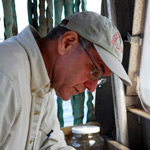
Richard Strathmann

Will Jaeckle

Michael Boyle

Rachel Collin
Course description:
Description
The course is aimed at graduate students, post-docs, or professionals who are interested in learning and applying knowledge about the diversity and ecology of marine invertebrate embryos and larvae. The students participating in this course will:
- Learn to describe and identify most kinds of invertebrate larvae
- Learn basic techniques for obtaining embryos and larvae
- Gain hands-on experience raising larvae and observing their behavior
- Learn microscopy techniques for obtaining good photos and videos of larvae
This two-week course seeks to give the participant the necessary tools to continue studies on the diversity and function of embryos and larvae. Daily activities will include morning and afternoon lectures, “how to” demonstrations, field trips, lab work, and discussion sections or talks. Lectures will include diverse topics on larval biology, functional morphology, diversity, and genomic and phylogenetic methods. Participants will be shown how to: collect larvae, maintain and grow larvae and their food, take good photos of larvae, and use simple low-tech methods to understand swimming, feeding, metabolism, settlement and metamorphosis. During the first week the class will work to identify, document, and DNA barcode larval stages from the local plankton to create an Atlas of Larval Forms from Bocas del Toro. The second week will focus on independent projects developed by the participants.
The course will be taught in English.
Application: Please e-mail your CV, 1 letter of recommendation, and a 1-2 page statement explaining your background and reasons for taking the course, to bocasresearchstation@gmail.com before February 1st, 2013. Limit 12 students. To be considered for a need-based fellowship, applicants should send a description of their need, their efforts to obtain funding from other available sources, and a travel budget. For more information see http://www.stri.si.edu/sites/taxonomy_training/
Participants:
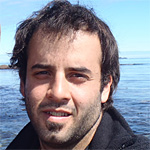
Gaston Alurralde
Universidad Nacional de Córdoba
I'm from Córdoba, Argentina. I'm interested in marine ecology, biogeography and polar ecosystems. I'm starting to develop my Ph.D in the Universidad Nacional de Córdoba. The aim of it is to tackle the benthic-pelagic coupling in an Antarctic coastal system affected by the thaw, framed on the ECLIPSE project, a research project about global warming in Antarctica. Parallel to my PhD studies, I am involved in other ongoing projects of the Marine Ecology Department, addressing taxonomical and biogeographical studies, as well as community and population dynamics of the most representative benthic species, specially of ascidians.
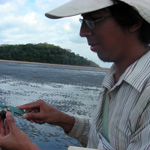
Allan Carrillo-Baltodano
Smithsonian Tropical Research Institute
My research interests centre on life history of marine invertebrates. During my undergraduate thesis, I worked with coral reef zooplankton from the largest coral reef in the Caribbean coast of Costa Rica. Through that, I became familiar with some of the most representative invertebrate larvae of the Caribbean Sea. Currently, I am working with several experiments that involve the larval biology of calyptraeid marine snails, from the Pacific coast of Panama.

Karen Chan
Woods Hole Oceanographic Institution
I am currently a postdoctoral scholar at the Woods Hole Oceanographic Institution. Broadly speaking, I am interested in combining experimental and modeling techniques to understand the roles of individual physiology and behaviors in shaping population-level ecological interactions. Specifically, I am interested in 1) swimming performance of marine plankton, its relationship with physiologies, particularly in response to environmental variations such as ocean acidification, and its implications on population dynamics; 2) Functional morphology of marine plankton and its evolutionary implications.
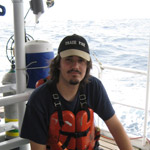
Marco Corrales
Centre of Marine Science and Limnology
I am currently a reseach assistant at the Centre of Marine Science and Limnology (known as CIMAR by its spanish acronym) from the University of Costa Rica. My works consists on analyzing zooplankton samples as well as water samples and determine abundance, taxonomic composition, biomass, nutrient and chlorophyll content. I am developing a Licentiate thesis about some biological aspects and the taxonomy of pelagic tunicates in Costarican waters. My research interests focus on functional morphology and natural history of planktonic organism, specially oceanic and deep water species.
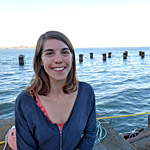
Carrie Craig
San Francisco State University
I am a master's student at San Francisco State University in the lab of Dr. Sarah Cohen. For my thesis, I am studying feeding by copepod nauplii, a significant yet neglected component of aquatic foodwebs, using a DNA-based approach that can detect the full range of potential prey consumed by nauplii and adults in the field. I am also interested in studying how aspects of larval biology in mero- and holoplankton could affect evolution in populations with very large numbers of individuals.
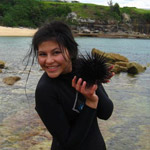
Shawna Foo
University of Sydney, Australia
I am a second year PhD student in the department of Anatomy and Histology from the University of Sydney, Australia. My project focuses on the adaptive potential of various echinoderms to the climate change stressors ocean warming and ocean acidification. It is essential to consider the potential for adaptation in experimental designs to allow for better predictions for how the seascape will change with ocean change.
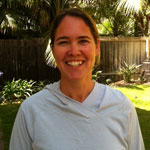
Nathalie Reyns
University of San Diego
My research interests focus on identifying the biophysical mechanisms that influence dispersal during the early life history stages of marine organisms. Much of my research has focused on crab dispersal. I also examine how larvae behaviorally respond to environmental conditions, including flow, salinity, temperature and pH, in controlled laboratory settings.
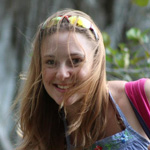
Lauren Vandepas
University of Washington
I am a second year PhD student in the University of Washington’s Department of Biology. I am interested in the evolution and development of marine invertebrates; my dissertation will examine components of the innate immune system in ctenophores (comb jellies). Genomic and developmental information about major physiological pathways can help inform phylogenies and give us a sense of what early animals were like. I am also interested in the phylogeographic distribution of Nautilus and whether certain species or populations are under threat from fishing.
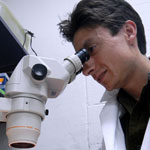
Eduardo Zattara
Smithsonian Institution National Museum of Natural History
I am a biologist interested in the role of development in the evolution of lineages. I work in the phylogenetic distribution of the ability to regenerate in invertebrate phyla, and how it relates to the presence of asexual reproductive strategies. I am currently working on the phylum Nemertea, investigating regenerative ability across groups, the origin of stem cells used in regeneration, and the main gene expression changes involved in the regeneration process.
![]()
Leyre Villota Nieva













